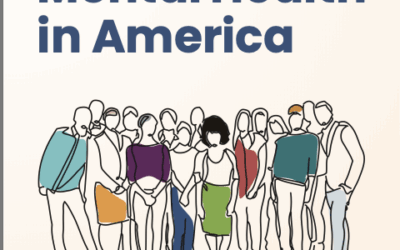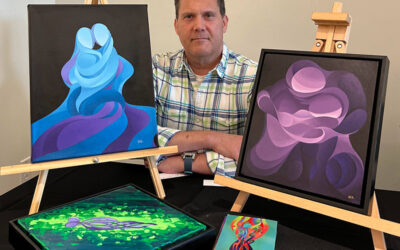First Responders (Public Safety Officers) include 911 Dispatchers, Emergency Medical Services/Emergency Medical Technicians, firefighters, and law enforcement officers. First Responders are often appreciated and thanked for protecting the mental and physical health of other people. First Responders receive trainings and certifications to save lives (see FirstNet) and help people survive trauma (see Psychological First Aid for First Responders and Road to Recovery.
First Responders respond to emergencies, trauma, violence, and life stressors. Since responding to one incident can have traumatic and stressful effects on First Responders, this affect is increased when First Responders have regular exposure to trauma and life stressors. This is why there is increasing emphasis on First Responders, themselves, having resources for their own mental health and physical health. We appreciate programs and organizations that focus on First Responder Issues. A good example is EMS1.com “First responder mental health: 10 things you need to know to save lives“.
One component of EMS1.com “First Responder mental health” is resiliency. Humans are expected to have strong self-determination and informal social control to reduce the need for formal social controls. Such resiliency can be even more expected for First Responders because First Responders are presumed strong, determined, and saving of other people despite their own, personal, weaknesses and struggles.
Mental health support is increasing across the nation (see First Responder Support Network; The Code Green Campaign) and in Virginia. On June 9, Virginia Governor Terry McAuliffe signed “Peer Support for First Responders” legislation. This legislation increases First Responders’ access to PTSD resources, mental health support groups, and suicide prevention. “Peer Support for First Responders” legislation is much needed.
For decades, there have been fund-based programs in Virginia, Virginia Public Safety Foundation, and a Virginia program that honors First Responders. Social policies and practices such as “Peer Support for First Responders” can develop upon existing programs and build upon extant research and writings such as a 2014 book chapter written by Robbie Adler-Tapia and Protecting the Mental Health of First Responders: Legal and Ethical Considerations.
It is complicated to provide mental health services for First Responders. First Responders are trained enough and strong enough to handle emergencies. This does not mean First Responders are immune to struggles. Similar to how military training does not prevent health issues for active military and military veterans, First Responders are not void of negative emotions, stress, and mental-physical issues.
One issue: Does the general population feel safer when First Responders, themselves, receive mental health treatment and are provided suicide prevention and PTSD services? Or, do the struggles of First Responders make the general population feel less safe and less reliant upon First Responders? When First Responders feel imperfect, weak and judged for admitting pains and seeking help, this is an example of why law enforcement officers refuse to voluntarily (rather than involuntarily) seek mental health services. This is among the difficulties of maintaining the humanity of First Responders and remembering First Responders need healthy ways to handle stresses and trauma.
Virginia “Peer Support for First Responders” legislation aims to provide services that are not judgmental and not shaming of First Responders who need to talk to someone and need mental health services. These services will consist of well-trained people who can relate to the experiences of First Responders and will keep information confidential. Mental health services for the general population focus on nonjudgmental listening when someone is worried, stressed and in pain. This is also how mental health services must be provided for First Responders.
Originally from Richmond, VA, Dr. Kimya N. Dennis is a sociologist and criminologist with interdisciplinary teaching, research, and community programs on a number of topics including mental health and suicide and suicidal self-harm.
Opinions in Guest Postings are those of the author and do not necessarily represent MHAV.
By Kimya N. Dennis
 Kimya N. Dennis is a sociologist and criminologist originally from Richmond, VA. She lives in Winston-Salem, NC and does interdisciplinary work on mental health, suicide and suicidal self-harm, and reproductive choices. Dr. Dennis’s work reaches diverse audiences and particularly underserved populations. She is on the board of directors for The Mental Health Association in Forsyth County, North Carolina chapter of American Foundation for Suicide Prevention, and LEAD Girls of NC. Dr. Dennis is faculty and the creator and Coordinator of the Criminal Studies program in the Department of Sociology and Criminal Studies at Salem College in Winston-Salem, NC. She can be contacted: www.kimyandennis.com – kimya@kimyandennis.com
Kimya N. Dennis is a sociologist and criminologist originally from Richmond, VA. She lives in Winston-Salem, NC and does interdisciplinary work on mental health, suicide and suicidal self-harm, and reproductive choices. Dr. Dennis’s work reaches diverse audiences and particularly underserved populations. She is on the board of directors for The Mental Health Association in Forsyth County, North Carolina chapter of American Foundation for Suicide Prevention, and LEAD Girls of NC. Dr. Dennis is faculty and the creator and Coordinator of the Criminal Studies program in the Department of Sociology and Criminal Studies at Salem College in Winston-Salem, NC. She can be contacted: www.kimyandennis.com – kimya@kimyandennis.com



